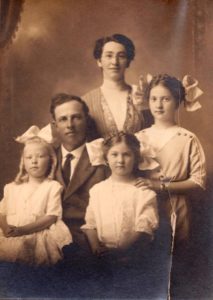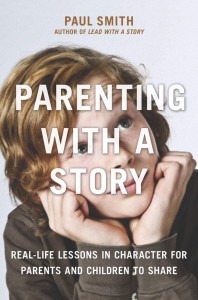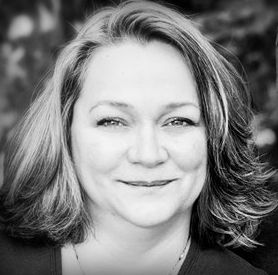Podcast: Play in new window | Download | Embed
Subscribe: RSS
Podcast (parenting-with-a-story-podcast-series): Play in new window | Download | Embed
Subscribe: RSS

Glenda Cecil was born in 1908 in Parker City, Indiana. When she was still a young girl, around the age of twelve, she was invited to attend one of the biggest Christmas parties in the county. Everyone was excited to attend because word had leaked out that the hosts planned something special for the evening hors d’oeuvres: fresh oranges.
That may not sound impressive to today’s reader. But in the middle of an Indiana winter in 1920, it was very impressive. At the time, nobody had figured out an economical way to get fresh produce from the Southwest to the colder states during winter. It was simply unheard of to eat any crop out of season. Somehow, and surely at great expense, the party host had made arrangements to do the impossible.
Young Glenda was so excited. But her mother was raising proper young ladies, so she and her sisters received the following instructions before going to the party. The first time the basket of oranges came around, they were to pass it along without taking one. Only on the second pass were they allowed to take anything. At great pain, Glenda did as instructed. Watching that basket of ripe oranges pass by must have been difficult for a twelve-year-old. Even more difficult, however, was what happened next. It never came around a second time. After the first pass, it was empty.
Glenda was heartbroken. No, it wasn’t like the devastation of unrequited love. But it made just as permanent an impression on her. Enough so that sixty years later, she would tell that story to her granddaughter, Kelly Olson. It was one of many stories Glenda told Kelly to teach her important lessons about what life was like in her day and the expectations her mother set for how young women were to behave in public. But in this case, Glenda took away a different lesson than the one her mother intended and that she wanted to impress upon young Kelly. That lesson is this: Sometimes when life presents you with an opportunity, you just have to take it, because you never know if that opportunity will come around again.
That lesson stayed with Kelly. And those moments when she’s drawn upon it have turned out to be some of her greatest. One such moment was when Kelly was a junior in college. That year, she was selected to participate in an overseas study program at Birkbeck College in London, one semester abroad with twelve classmates. It was an amazing opportunity.
Near the end of the three-month program, the group had an unscheduled evening and the students were debating what to do. Kelly desperately wanted to see a live performance of Les Miserables. It was perhaps their last opportunity while in London. There were only a few cities in the world where she could see such a performance, and she didn’t live near any of them.
Despite her impassioned plea, none of her companions was interested. Each opted for another attraction or to simply stay home and study. Kelly was heartbroken. The thought of venturing out on foot, by herself, in the dark and cold winter of an unfamiliar city of eight million people was beyond consideration. (Was she even allowed to do such a thing?) Besides, she didn’t even have a ticket. After mustering as much courage as she could, however, she decided to go it alone.
She checked her map, bundled up for the wintry weather, and set out on her adventure. She trudged two or perhaps three miles through the snow and ice to Queen’s Theatre. Without an advance ticket, Kelly had to wait in line for unclaimed seats of season ticket holders.
While she was waiting in the cold with dozens of other hopefuls, a rumor rushed through the line that the queen might be attending the performance that night. At first, that seemed to call for excitement. And then she realized what it really meant was that season ticket holders were even more likely to show up that night. Not to see the play, but to see the queen! Her heart sank again. But she continued to wait.
Slowly, the line shrank in front of her as a few people got tickets or gave up and went home. As she was close to giving up herself, the ticket master came out and announced that he had one single ticket available. “Is there anyone who wants just a single ticket?”
“Yes! Here! Here!!” she shouted, her hand shooting up like an eager college student barely able to contain a correct answer. And with that, it was hers.
She took the ticket and entered the theater, her heart racing. Her eyes were wide with excitement and full of her good fortune. As the ushers directed her to her balcony seat, however, she could not believe where it was located—front row center! She had arguably been given the best seat in the house. She sat enraptured, barely daring to move for the entire performance. The queen never did show up that night, which is just as well. Because Kelly felt like she had gotten her chair.

Today, Kelly Olson describes that evening as one of the “shining moments” of her life. “It was magical.” She’ll never forget her tears at the climactic scenes, shed probably just as much for the heroes and heroines as they were for her own good fortune. Imagine if she hadn’t been brave enough to strike out on her own that night, or to confront the dark or the distance or the weather. Or what if she hadn’t had the patience to wait in that long line? She knows the answer, of course. She would have missed out.
Looking back, Kelly recognizes that many of her best memories in life were times she was alone, perhaps on a business trip, but had the courage to venture out on her own to explore her temporary surroundings: seeing the Frick art collection in New York City, visiting the DuPont gardens and Andrew Wyeth studios in Delaware, even catching her first glimpse of the Pacific Ocean.
And as she looks back at all of those moments with a smile, she hopes Glenda Cecil would be proud of her, knowing that when the basket came around, she took her orange.
As with all these stories, I encourage you to share this with your kids and then have a discussion about it. Here are some questions to get you started.
For the story about Glenda Cecil and the basket of oranges:
- Why do you think Glenda’s mother told her to not take an orange until the second time around? What was she trying to teach her daughters?
- When is it okay to take something offered to you?
- Have you ever heard the saying, “Ask for what you want? The worst thing that could happen is that the answer will be ‘no.’” Do you agree or disagree?
- What’s a situation where you should say, “No thank you” even if you want what’s being offered?
And for the story about Kelly’s trip to see Les Mis:
- Have you ever gone off to do something exciting all by yourself? What was it?
- Have you ever wanted to go do something, like Kelly, but nobody would go with you? What did you do?
- What’s something you missed out on because you were too afraid to go alone?
- What’s something you should never go off to do by yourself?
[You can find this and over 100 other character-building stories in my book, Parenting with a Story.]
—
 Paul Smith is one of the world’s leading experts on business storytelling. He’s a keynote speaker, storytelling coach, and bestselling author of the books Lead with a Story and Parenting with a Story.
Paul Smith is one of the world’s leading experts on business storytelling. He’s a keynote speaker, storytelling coach, and bestselling author of the books Lead with a Story and Parenting with a Story.

 Connect with him via email here.
Connect with him via email here.
Follow him on Facebook, LinkedIn, Twitter.
Sign up for his newsletter here to get one new story a week delivered to your inbox.


Well done Kelly! 🙂 As someone who often travels alone and who very much seizes opportunities and goes out of her way to create them, I resonated so very much with this story! Here’s to grasping the orange when offered! 🙂